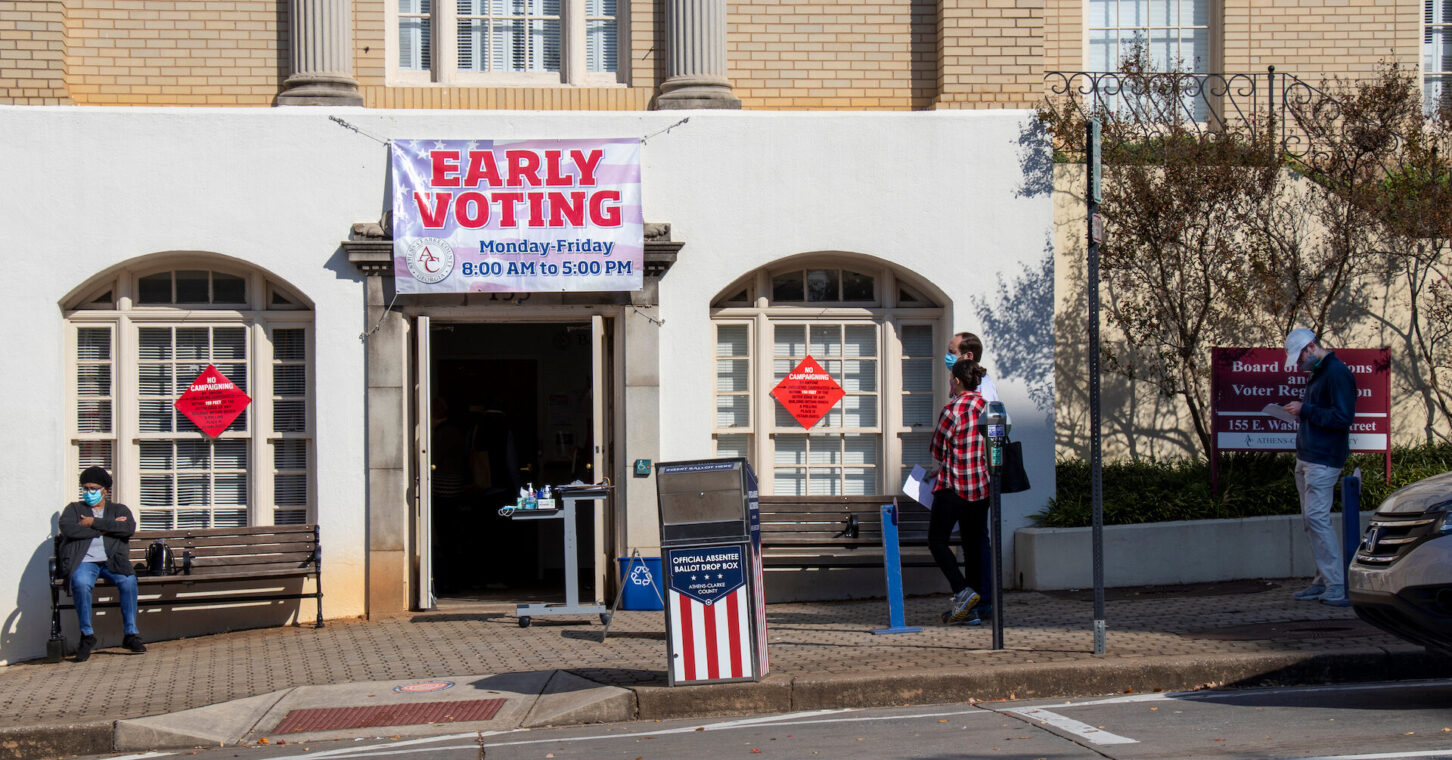
Early voting begins this week in Georgia’s primary elections, the next step in a long political slog this year.
Georgia’s 16 electoral votes will be hotly contested given our new status as a swing state, and we can expect an equally bitter fight over the security and accessibility of our elections. Too bad, because election security and accessibility in Georgia ought to be settled issues by now.
Georgia’s 2018 and 2020 elections got ugly. Democrats and Republicans traded accusations of voter suppression and election fraud, respectively, after contests that saw Brian Kemp edge out Stacey Abrams, and Joe Biden narrowly defeat Donald Trump.
Although there was no proof that either fraud or suppression had taken place, the General Assembly passed Senate Bill 202 to restore voter confidence. At another time, SB 202 might have been deemed a clean-up bill correcting flaws in the process. But in a hyper-partisan environment, that view hardly prevailed.
Some of Atlanta’s leading corporations spoke out against the bill. Major League Baseball pulled its All-Star Game, planned for that summer at Truist Park, citing SB 202 as the reason. The recently inaugurated President Biden called it “Jim Crow 2.0” in decidedly unpresidential fashion.
All of them turned out to be wrong, and the All-Star Game in Atlanta was even rescheduled for next year. Georgia’s elections are stronger after the bill by measures both subjective and objective.
Yes, conservative organizations generally like it. The Heritage Foundation, for example, initially ranked Georgia first on its Election Integrity Scorecard (we have since been surpassed by Tennessee).
But other observers also give the state high marks. The Massachusetts Institute of Technology ranked Georgia 11th on its 2022 Elections Performance Index, which rated states based on objective data. Georgia beat the national average on numerous fronts, such as low rates of rejected voter registrations and voters needing to cast provisional ballots.
Even measures that rate Georgia less favorably tend to show improvement after SB 202. For example, the University of Kansas’ Cost of Voting Index, which purports to gauge the ease of voting, rated Georgia only 29th in 2022 – but that was markedly higher than two years earlier, when we ranked 49th.
No doubt, someone could cherry-pick a metric that makes Georgia look bad. But the clearest evidence is the large number of Georgians who voted in 2022. More than 85% of eligible voters were registered that year, and more than 52% of those registered cast a ballot. Both marks were better than the national average, per MIT.
Could something go wrong this year? Sure, something could happen; with 159 counties, each running its own election, there’s always a chance. But the likelihood of error has gone down as processes and procedures have been tightened up.
Perhaps the largest remaining impediment to voter confidence lies in the reporting by each county. By now, observers are accustomed to the painfully slow counting of votes in metro Atlanta counties, particularly DeKalb and Fulton.
Because those counties tend to be heavily Democratic, their late-night reporting of votes often significantly alters the margin in tight races.
Then there’s early and absentee voting. SB 202 allows those votes to be counted sooner than before, but the timing of their reporting varies widely from county to county.
Although the Republican Party has been encouraging its loyalists to consider voting early or absentee – and even Trump recently reversed himself on the issue – the recent pattern is for those votes to lean Democratic as well. So when they are reported in bulk, they sometimes arouse suspicions.
The solution is for Georgians to educate themselves about these matters. Late or bulk reports of vote totals alone — as frustrating as they might be to those constantly refreshing the secretary of state’s web page for election results — don’t mean anything illicit has taken place. If something untoward does happen, our election statutes are clearer than ever about what the law requires. And there surely will be more people watching Georgia’s elections this year than ever before.
Vigilance is always warranted, but the system itself is better-positioned than ever.